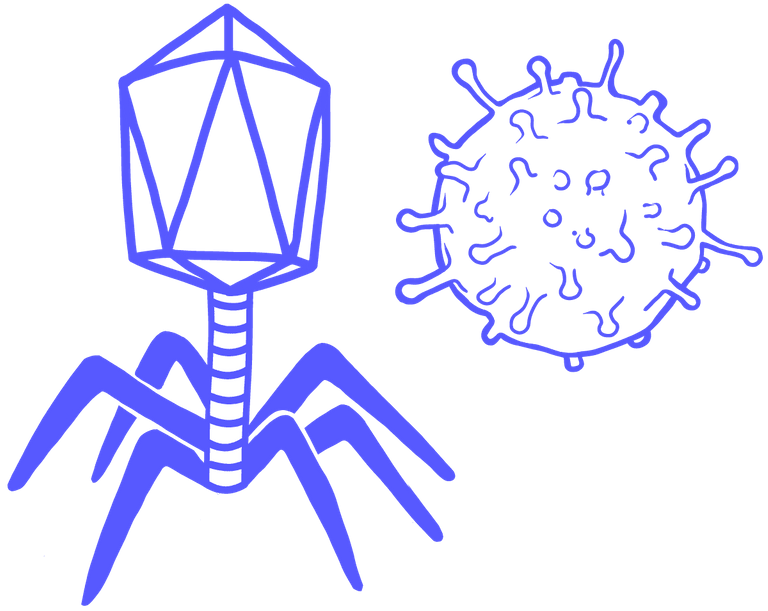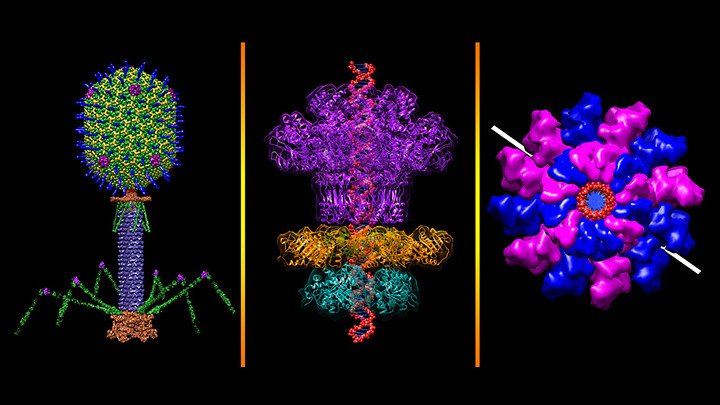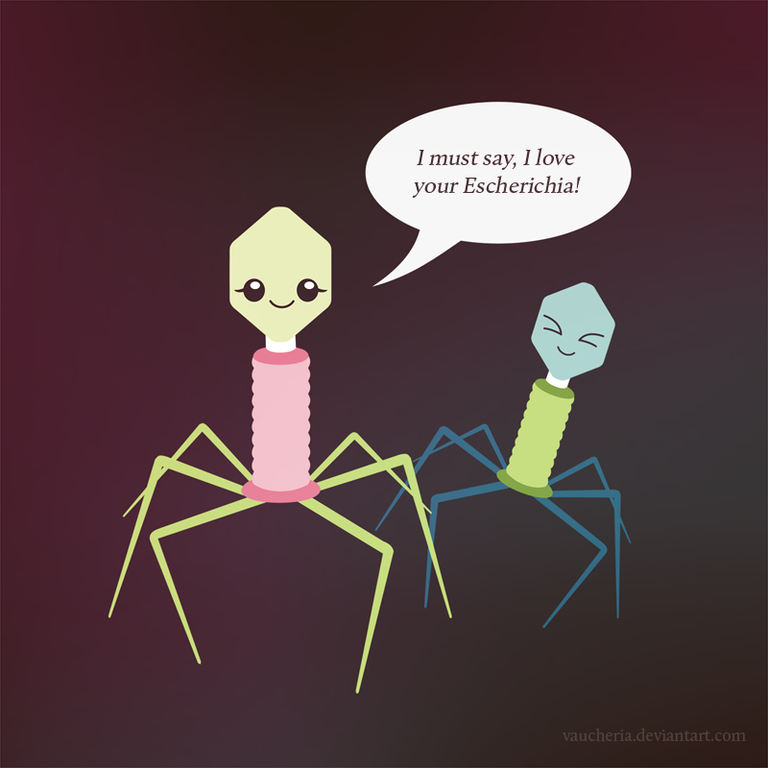Scientists have come a conclusion that our body is a complete ecological system on its own made up of over 40 trillion cells but we are not made up of our living cells alone instead with have a lot of inhabitants living in our body and they are not causing us harms rather, they are protecting us and preventing a lot of disease from happening in our body, and one of those organisms are viruses.
We have these negative believe about viruses especially because of what we were thought in elementary school. In elementary, my teacher painted virus like that bad boy that doesn't have two job but to only cause negativity in our lives causing disease and death because it just enjoys causing diseases that cannot be treated and then kill its victim. While what he was right to a reasonable extent, it wasn't completely right because a lot of viruses are good at helping us because they are a part of our live, protecting us from disease and even in some cases, kill cancer cells.
On our skin, we have over 40 trillion bacteria cells that are regarded as our body's normal microbiome that live, eat, and reproduce on the skin. In the gut, they synthesize vitamin, in the mouth they neutralize weak acids, and in the body they balance our immune system as they prevent harmful bacteria from getting into the body. You might think that bacteria are doing us a lot of good but in reality they are just looking out for themselves which all they do and it just happens that in the quest to survive they are doing us good. In the quest to survive, we know bacteria can multiply and when their numbers become high, they can become a menace to our health and to keep them in check, the body uses viruses as their predators.
In the gut, researchers have found a lot of bacteriophages present there which means their job is to do one thing, maintain the population of the bacteria growth instead of infecting us. The viruses in our body make up the human virome which are symbiotic viruses that help us stay alive.
One bacteriophage in our body is Lambda phage which is found in the gut and its job is to ensure that the Escherichia coli (E.coli) population doesn't increase because it feeds on E.coli. While E.coli is good for synthesizing vitamin for us but they can pose risk when too much in the body as they can invade tissues causing disease and they can also feed on the body's resources beyond normal when their population increases.
The virus releases its DNA into the bacteria and once inside the bacteria, the proteins disable the bacterium defense system. More viruses are created in the cell of the bacteria and they burst out of the bacteria cell when they are done. There are other cases here the viruses get into the bacteria and they go into a hibernation state allowing the bacteria to keep multiply and multiplying the virus at the same time until it awakens and does what it does best.
Just like there are viruses that help to take care of bacteria in our body, there are viruses that make bacteria deadly. For instance, there are some specie of bacteriophages like the CTXφ bacteriophage which infects vibrio cholerae of which most strains of it are harmless bacteria in the gut. When it inserts its DNA into the genome of the bacteria, they combine with the genome of the bacteria and release the gene for the cholera toxin and this gene becomes a part of the genetic linage of the bacteria as it keeps multiplying. When the bacteria begin to release the toxins that makes us sick causing diarrhea leading to Cholera.
We have talked about the good and the bad side of bacteriophages in the body but then, do you know viruses do something even interesting? They kill cancers. Known as Oncolytic viruses, they specialize in the hunting of tumors instead of killing bacteria or hunting our cells. Example of such viruses are the newcastle viruses, and the Reovirus. Once the viruses infect the cells, they multiply and then burst out of the mutant cells thereby killing the cells. Once they have burst out of the cell, they allow the immune cells to begin attack them. Scientists are still looking into oncolytic viruses and their importance in eliminating cancer but this is still relatively new.
Reference
https://www.ncbi.nlm.nih.gov/pmc/articles/PMC8876576/
https://www.nature.com/articles/s41579-021-00536-5
https://www.ncbi.nlm.nih.gov/pmc/articles/PMC3696810/
https://www.ncbi.nlm.nih.gov/pmc/articles/PMC5882018/#bibr13-1535370218755658
https://www.nature.com/articles/s41392-022-00974-4
https://www.ncbi.nlm.nih.gov/pmc/articles/PMC7326730/
https://www.nature.com/articles/s41579-021-00536-5
https://www.ncbi.nlm.nih.gov/pmc/articles/PMC10413269/
https://www.ncbi.nlm.nih.gov/pmc/articles/PMC4451395/
https://www.pnas.org/doi/full/10.1073/pnas.1000310107
https://www.ncbi.nlm.nih.gov/pmc/articles/PMC7326730/
https://www.ncbi.nlm.nih.gov/pmc/articles/PMC3509688/
https://www.ncbi.nlm.nih.gov/books/NBK564298/
https://www.ncbi.nlm.nih.gov/pmc/articles/PMC8594841/#pbio.3001424.ref007
https://www.ncbi.nlm.nih.gov/pmc/articles/PMC6790338/
https://www.frontiersin.org/journals/oncology/articles/10.3389/fonc.2014.00167/full
https://www.mdpi.com/2227-9059/9/4/419
https://www.mdpi.com/2072-6694/12/11/3219




